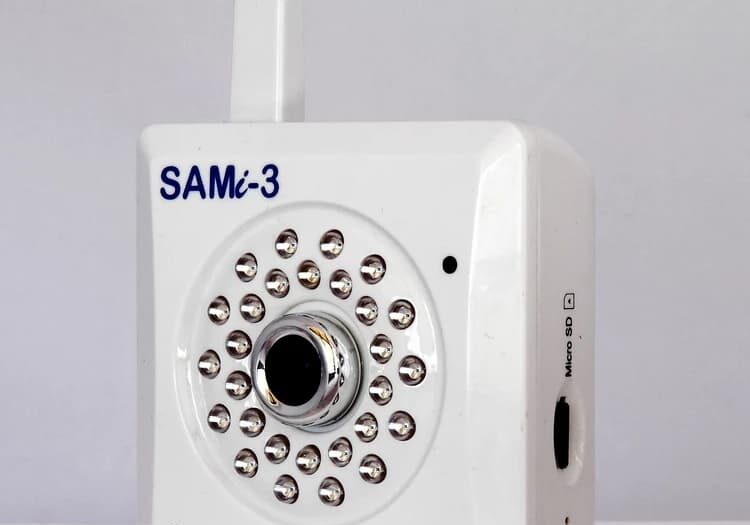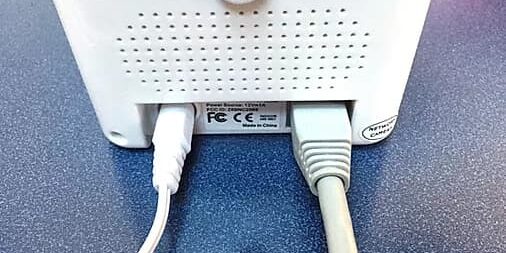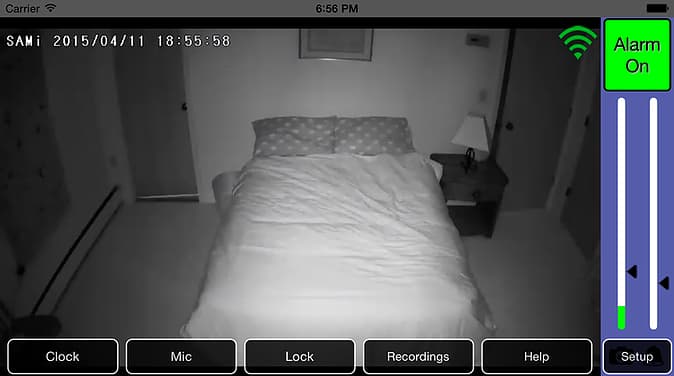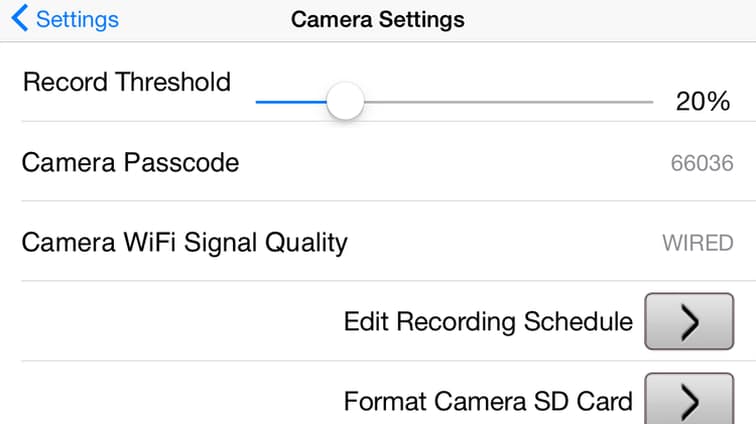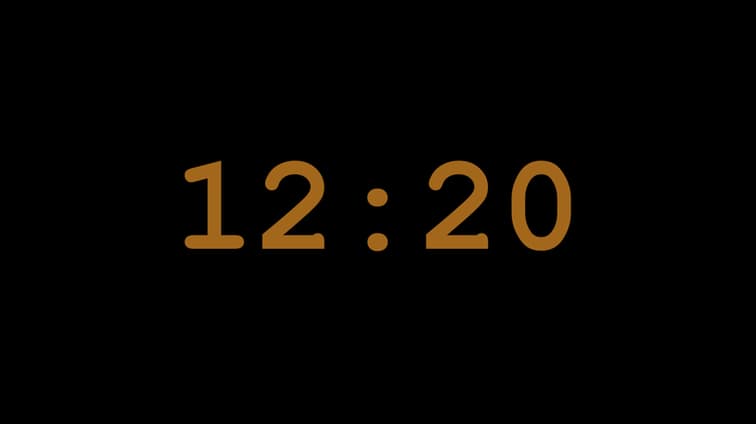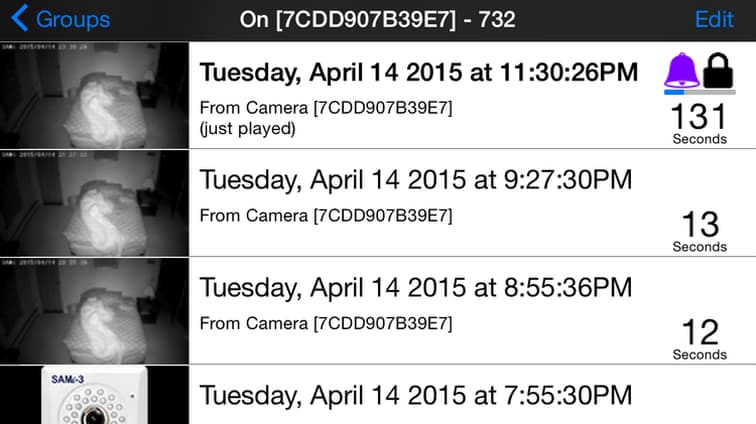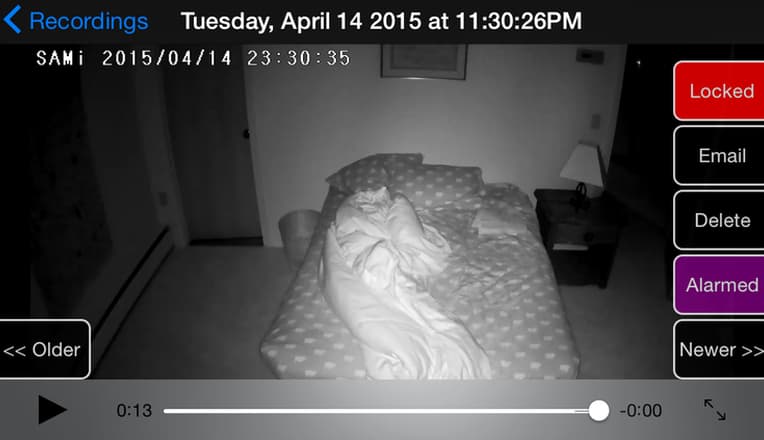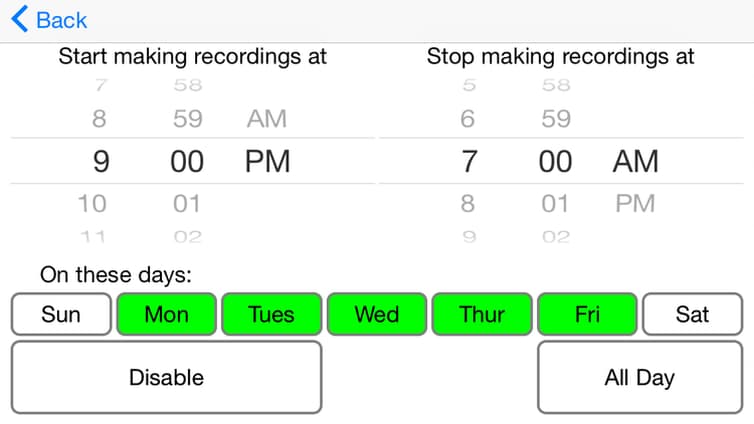
sleep activity monitors
SAMi® is a sleep activity monitor for individuals, parents and caregivers who need to watch carefully for unusual movements at night.
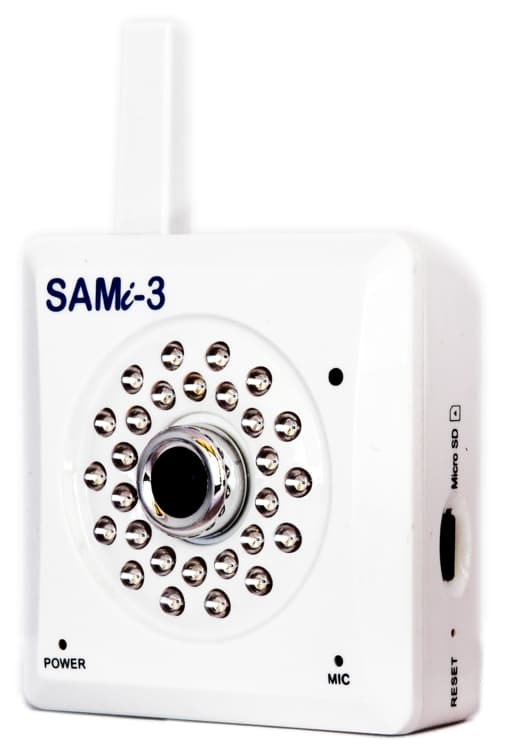
Smart Monitoring
During sleep, audio-video information from a remote infrared video camera is sent to an app that runs on an iOS device such as an iPhone or iPad mini. The SAMi app records and analyzes the video for unusual activity. When an unusual event is detected, it sounds an alarm and records live audio and video from the SAMi network camera. Within seconds, the individual or caregiver can take any necessary action.
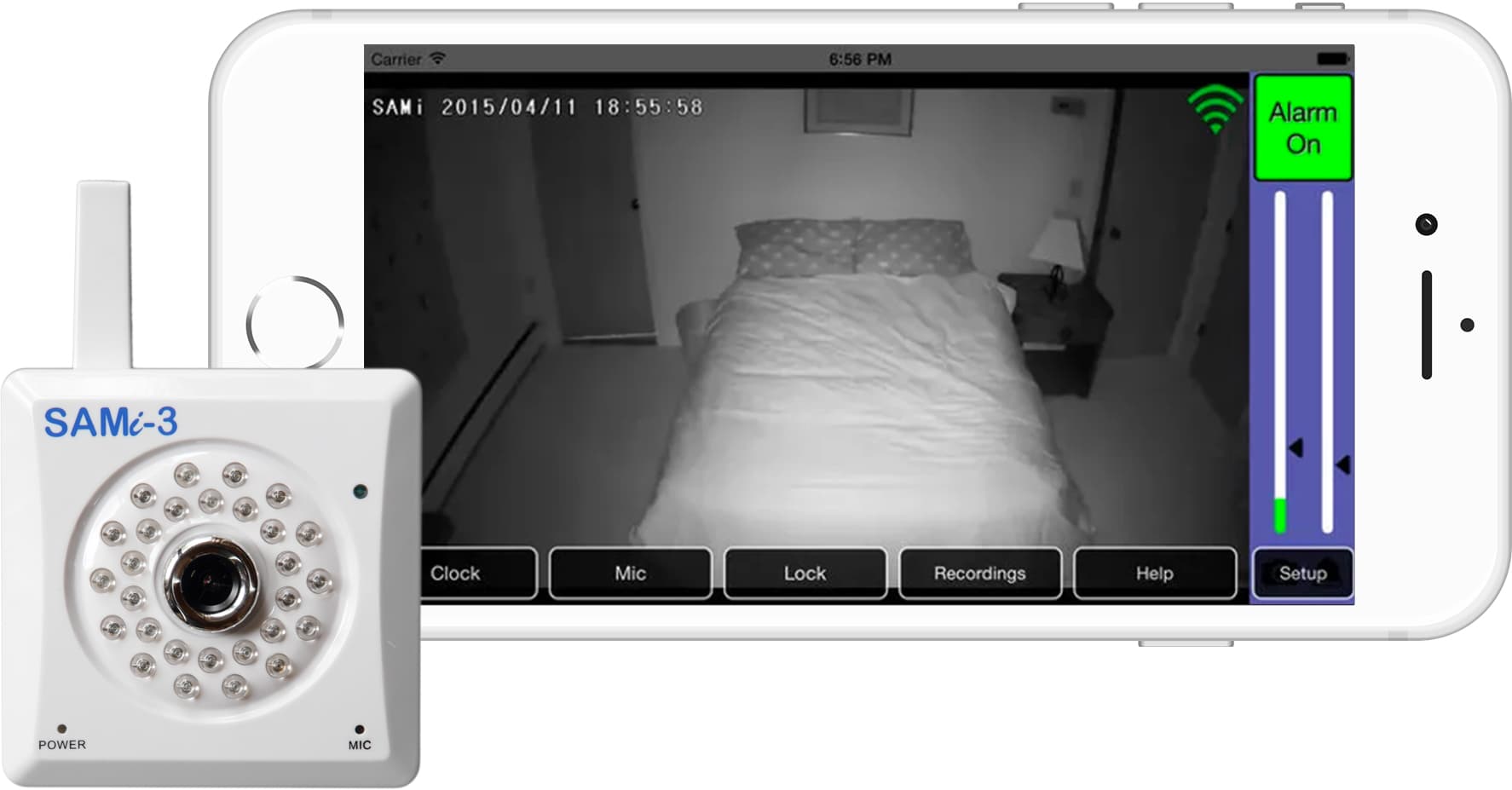
SAMi-3 Sleep Activity Monitoring App
Sophisticated motion sensing
Temporal and spatial filtering increases sensitivity and reduces false alarms.
Real-time status reporting
Alerts you to events and problems.
Live video and audio
Quickly analyzes whether action is required.
Using SAMi
If your child needs to be closely monitored for unusual activity at night you probably suffer from a lack of sleep.
SAMi was created to address a very personal need for a reliable system that:
Compare the SAMi features to other common monitoring methods
Co-sleeping
The gold standard method for monitoring a child but it can be very hard on both parents and child. Most parents are very sensitive to their child’s movements, which means that sounds and even normal tossing and turning results in multiple awakenings. Co-sleeping can be a privacy compromise for the parents as well as the child.
A baby monitor
Another common device for monitoring someone. Baby monitors are inexpensive, but they only alert the parents to noise. Similar to co-sleeping, hyper-vigilant parents typically are awakened multiple times in the night by benign noises. If a monitor is only sensitive to sounds, you often need to actually go to the child’s room to investigate, possibly waking the child. Although newer video baby monitors let you look for a problem remotely, they still typically rely on audio only. Not all abnormal movements are accompanied by sound.
Mechanical movement monitors
Mechanical movement monitors that detect physical shaking are often very effective. Some systems attach to the bed and detect rhythmic shaking. Others use a sensor worn on the body. These have been proven very effective but generally only detect and alert in the case of rhythmic motion. They also do not provide a live video and audio display for quick confirmation or make recordings for later review.
Other ways to use SAMi
Self Monitoring
Living alone presents additional challenges for those who take medication for conditions that occur during sleep. A SAMi system setup in your own bedroom provides you with time-stamped recordings of your movements during the night. The next morning you can easily review the events that were recorded. You can configure SAMi to record with or without the alarm feature. If the alarm is enabled, it sounds until you silence it, which might be an important factor for determining if any action is needed, such as taking additional medication.
Travel
SAMi is available with and without a dedicated Wi-Fi router. The SAMi kit provides you with a completely portable monitoring system. This gives you the freedom to continue to monitor your child from any nearby location, such as an adjacent hotel room. Note that you are limited to a range of roughly 50ft/15m.
About the Technology
SAMi has two parts:
The SAMi Application
A customizable program that searches and analyzes video information for “qualified” events. If an event occurs, an audible alarm sounds on the iPhone or iPod and live video and audio is displayed. The application timestamps and archives recordings from the video camera for later review.
Product Features
Wall mount attachment point
Use with supplied bracket for flexible installation. Optional wired Ethernet connection for maximum reliability and performance.
Sophisticated motion sensing
Temporal and spatial filtering increases sensitivity and reduces false alarms.
Real-time status reporting
Alerts you to events and problems.
Live video and audio
Quickly analyzes whether action is required.
Settings page
Allows you to fine tune the performance for your needs. You can customize the alarm volume and sensitivity, the display brightness, and the monitoring start and stop times.
Clock mode
Monitoring continues but live video is disabled for privacy. The display will automatically switch back to live video and audio when the alarm sounds or on command.
Recordings log
Only motion is recorded and all recordings are stored on the iOS device for easy review.
Highlighted alerts
Recordings made during an alarm are identified and easily found.
Playback controls
Allow you to quickly review recordings.
MPEG 4 standard format
Recordings are an iPhone-compatible format using MPEG 4 with AAC audio. This format provides for easy and secure transfer to a computer for sharing.
Support
Frequently Asked Questions
Troubleshooting
Using the SAMi app
Advanced Topics
Maximising Reliability
Guided Access
iOS has a hidden feature called "Guided Access" that can greatly increase the SAMi app's reliability. When Guided Access is enabled for the SAMi app the home and power buttons are disabled, notifications are disabled, other apps cannot run in the background, and if the SAMi app or iOS device stop running for any reason the iOS device restarts SAMi automatically.
We highly recommend you run in Guided Access mode if you can. If you have an iOS device dedicated to SAMi (also recommended) you can leave it in Guided Access mode all the time. Otherwise, it is easy to start and stop Guided Access once you have set it up. This will prevent you from accidentally hitting the home button and stopping the SAMi app in the middle of the night. It will also prevent notifications (such as the arguably too-frequent iOS update messages) from interrupting the SAMi app.
To set up Guided Access, Tap Settings > General > Accessibility > Guided Access
Tap the switch to enable Guided Access.
Tap "Passcode Settings" and enter a passcode. I use "0000" but you can make it more secure if you like. If your device supports Touch ID turn that on as well.
Now launch the SAMi app. To start Guided Access, triple-click the home button.
To exit Guided Access, triple-click the home button again (or press the Home button and use Touch ID).
If you forget the passcode (you should have used "0000"!) press and hold the home and power buttons. After a few seconds your device will power off. You can then turn it back on and Guided Access will be off.
You can customize Guided Access, for example by default the volume buttons are disabled but these can be enabled. Here are Apple's complete instructions on Guided Access.
USB Power Adaptors
We recommend you use an Apple branded USB power adapter. In particular we recommend this 12w power adapter even if you are using an iPhone or iPod. It is the same price as the 5w power adapter and recharges much faster. Many 3rd party power adapters work just fine, but we've had more than one problem that turned out to be caused by a non-Apple power adapter (typically poor touch screen performance).
WiFi Routers
Most people use their home WiFi network with no problems. If, on the other hand, you are having camera disconnects or you are looking for maximum reliability investing in upgrading your router or, better yet, using a dedicated WiFi router may make sense. SAMi is a little different from other WiFi devices in that it both uses a lot of WiFi bandwidth (for streaming live video and transferring recordings) and the data needs to be sent without delay (for the live display). Reduced bandwidth or delays may not be noticed when browsing the internet but can interfere with SAMi operating properly.
Problems we have seen include:
- Other WiFi traffic interfering. Unlike wired Ethernet, WiFi is a shared resource. Too many devices connected to the same network can cause SAMi monitoring interruptions.
- Older WiFi devices make this even worse. Many WiFi networks will reduce the data transfer rate to that of the slowest connected device, for all devices. SAMi supports 802.11n, but if there is an older 802.11b device on the network (even if it doesn't connect to SAMi) the SAMi camera will be forced to run at the slower rate.
- Unreliable WiFi routers. Many older or less expensive routers will sometimes have trouble with passing the amount of data SAMi sends. This can cause the WiFi router to spontaneously reboot, resulting in monitoring stopping for several minutes.
- WiFi routers supplied by your broadband network provider. Many (if not most) people just use the WiFi that comes with their broadband router. We've seen problems with these routers, particularly ones in Europe.
If you do choose to upgrade or add a router, we recommend you choose a well known brand of "Dual Band" router. These routers have two radios, one operating at 2.4Ghz radio and another at 5Ghz. The SAMi camera will connect to the 2.4Ghz radio and your iOS device will typically use the 5Ghz radio, more than doubling the data rates. We have had good success with the NETGEAR N600 Dual Band Wi-Fi Router (WNDR3400).
If your existing router is working well for your home internet needs we suggest you don't replace it with the new router, but instead dedicate the new router to SAMi. Give it a different WiFi network name (SSID) and follow the SAMi setup instructions to switch your SAMi camera to the new network. Locate the router roughly halfway between the SAMi camera and your iOS device.
The SAMi camera does not need an internet connection. But if you want your iOS device to be able to connect to the internet you can run an Ethernet wire from the new router's WAN port to your existing router's LAN port. Refer to your router's documentation for details.
SAMi3 runs on these devices
The latest version of the app requires iOS 9.0 or newer. We recommend iOS 10.3 and newer.
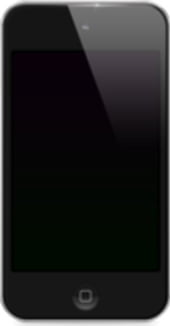
5th generation and newer iPod touch. Recommended: 6th generation.
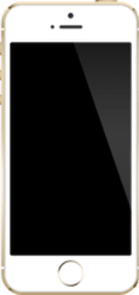
iPhone 4s and newer. Recommended: iPhone 5 and newer.
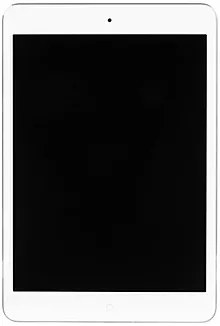
iPad mini (any version). Recommended: Mini 2 and newer.
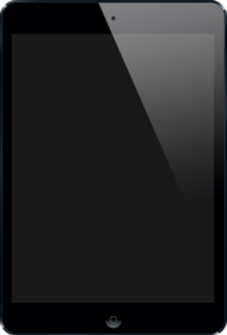
iPad 3rd generation and newer. Recommended: 4th generation, Air, Pro, or 2017 models
The original SAMi-2 (with QR Code) also supports the above devices running iOS 7 or iOS 8, and the 4th generation iPod Touch.
SAMi3 Downloads
Download manuals and user guides from the list below.
The original SAMi-2 (with QR Code) also supports the above devices running iOS 7 or iOS 8, and the 4th generation iPod Touch.

